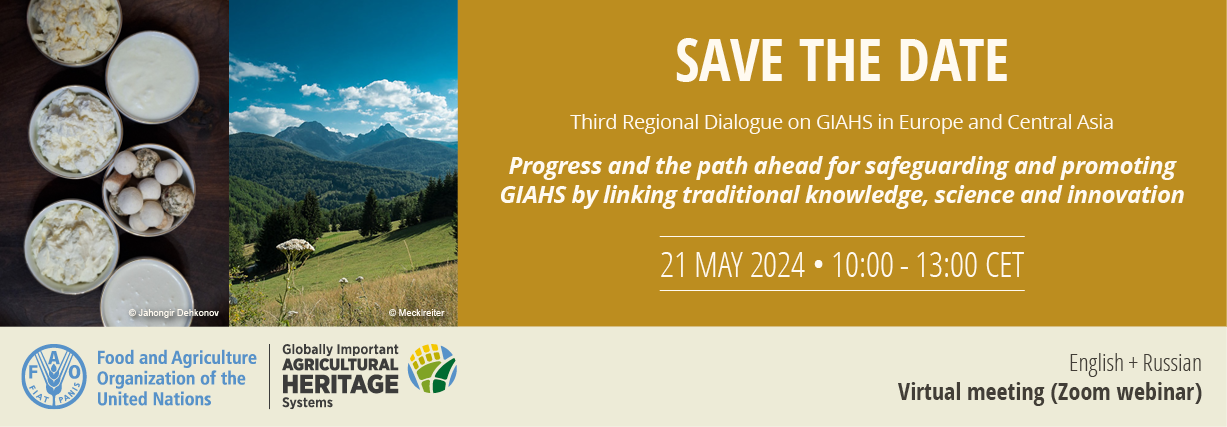Third Regional Dialogue on Globally Important Agricultural Heritage Systems
Virtual Event, 21/05/2024

10.00–13.00 (CEST), 21 May 2024
Since 2015, FAO has supported Members in the Europe and Central Asia region through the Globally Important Agricultural Heritage Systems (GIAHS) programme, which recognizes the commendable work of our farmers, herders, fishers and forestry people and serves a tool to protect and conserve the resilient agricultural systems they have built up.
The third Regional Dialogue on GIAHS for Europe and Central Asia is a forum for GIAHS actors from across the region. Scientists and experts will provide scientific evidence gleaned from the work carried out in these agricultural systems, share keys to the resilience that characterizes these systems, and discuss the current threats that put their sustainability at risk.
At the event, Members can discuss advances in agricultural heritage identification and dynamic conservation and share practical experiences for advancing the science–policy interface on the interplay of traditional knowledge, science and innovation for food and livelihood security. Speakers will present and update the advances and way forward of the FAO Regional Roadmap 2022–2025 for the dynamic conservation of GIAHS sites in Europe and Central Asia.
In its Science and Innovation Strategy, FAO promotes international and interdisciplinary collaboration to strengthen the interface between traditional knowledge and cutting-edge science and technology and thus help maintain and enhance global agrifood systems. The current commitment consists of betting on traditional knowledge, science, and innovation in Globally Important Agricultural Heritage Systems sites. This implies, on one hand, supporting the adaptation of these traditional agricultural systems to new trends and challenges. On the other hand, it implies collecting from these systems the keys of their resilience, learning what has enabled them to maintain their food and livelihood security sustainably. Moreover, the co-development of the action plan for the dynamic conservation of GIAHS provides a perfect tool for smallholders and farmers to engage in the science–policy interface.
